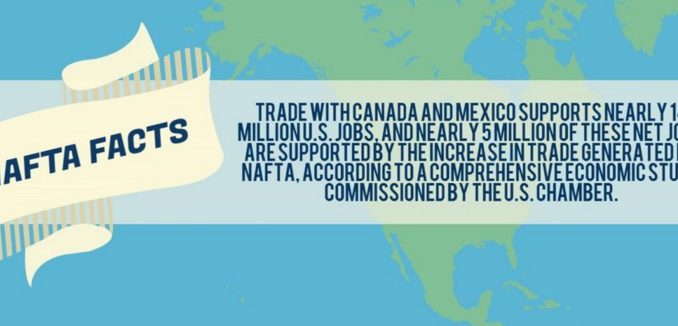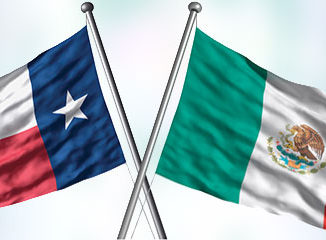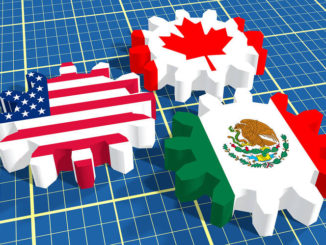
by Matthew Rooney
In a political year, it’s not surprising that conversation around economic issues eschews facts in favor of sound bites. But the current rhetoric around trade is not only incorrect, it’s irresponsible. Here’s the real story on the North American Free Trade Agreement and how it helped all North Americans, the U.S. included.
Canada was already an industrialized, middle-class country in 1993, but it was economically stagnant and struggling to provide opportunities for Canadian youth. Today, thanks in large part to the guaranteed access to the U.S. market offered by NAFTA, Canada is at a comparable level with the U.S. As our partner in NORAD, which secures the North American airspace and maritime domain, and a member alongside us in NATO, Canada not only secures our northern border, but they maintain a highly capable military that invests in equipment (that they buy from us) to sustain interoperability with U.S. forces. Canada’s military has fought effectively alongside our forces in Afghanistan, actually taking a higher rate of casualties than U.S. forces. A like-minded nation, Canadian diplomacy is supportive of U.S. objectives in NATO, the U.N., the Organization of American States and other regional organizations. The prosperity that sustains these efforts is a result of NAFTA, as is the growing Canadian commitment to supporting our counter-narcotics and security efforts in Mexico, Central America and the Caribbean. These factors translate directly into enhanced national security for the United States at Canadian expense.
NAFTA is responsible for the development of a thriving Mexican middle class. Rather than immigrating to the United States for opportunities in agriculture or landscaping, the new Mexican middle class became doctors, professors, app developers and, yes, manufacturing workers. They buy iPhones, cars, air conditioners and refrigerators, and they contribute to the United States’ tourism industry. They demand their government provide better education, cleaner courts and more professional police. In short, NAFTA did more to help Mexico become an economically-thriving, financially-stable middle class neighbor than anything else we could have conceived. Work remains, as Mexico continues to face many challenges, including widespread corruption and powerful organized criminal enterprises, but the progress it has made since NAFTA has reduced immigration into the U.S., created new markets for American products and strengthened the security of our border.
Finally and most importantly, NAFTA strengthened the United States economy. By embracing global competition in the 90’s, the U.S. was able to focus our entrepreneurial skills and capital markets on innovation, leading directly to an explosion in information technology and communications products. We lead the world in aerospace, advanced manufacturing and nanotechnology. The result has been a revolution in productivity, which is the foundation of prosperity and growth for any economy. It is true that we gave up apparel manufacturing and parts of auto production, steel and some other heavy industries and that employment in these areas has declined even as our manufacturing sector continues to grow. But the truth is that outsourcing is not the only factor responsible for that: automation and a lack of skill development has played a significant role. This is our core challenge: an open economy has created the most productive manufacturing, services and agricultural sectors in the world, as capital and technology have displaced labor, but we have not seen new job opportunities arise.
The answer to the challenge is not to wall ourselves off from the global economy. Rather, we must face global competition and use it to ensure that we produce the next big thing. Will it be new energy technologies? New transportation technologies? Or something nobody has heard of yet? The only way to find out is to set our imaginations free, which means keep our economy open and ensure that entrepreneurs can test innovations in the marketplace and scale them as they prove themselves. Any other approach leads to poverty and insecurity.
Matthew Rooney is the Director of Economic Growth at the George W. Bush Presidential Center.



